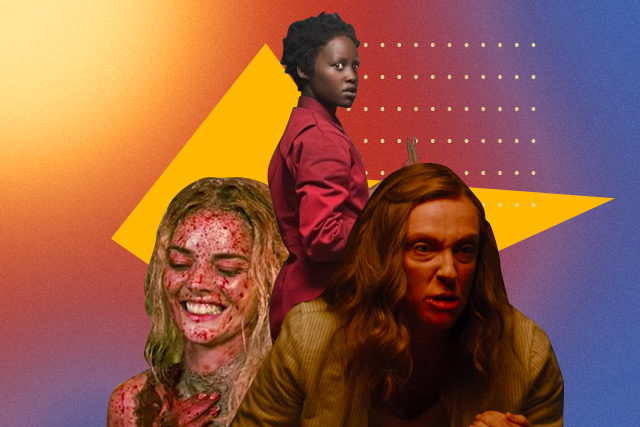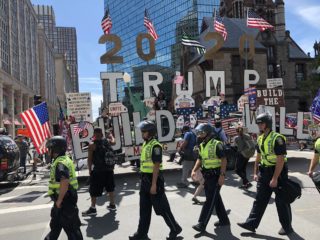It’s official: Women now rule the horror and thriller movie genre.
Horror films have always reflected society and its cultural fears during a specific era. Morbidly Beautiful noted that directors use monsters, supernatural elements, and other scary themes “to represent even more terrifying real-life horrors.”
As film commentary channel Wisecrack would explain, the 1968 film “Rosemary’s Baby” would represent sexual abuse and single motherhood, while 1973’s “The Exorcist” showed the harrowing effects of a woman choosing her profession over her family (in this case, it’s the possession of her daughter, Regan). These themes came during the rise of second-wave feminism when women were fighting for their right to reproductive health, expressing their sexuality, and equality in the family and workplace.
Fast forward several decades later, these films have become more political. Vox noted that in 2016, horror reflected Americans’ fear of invasion—be it by home intruders or immigrants—with the release of films like “Green Room,” “Hush,” and “The Purge.”
Then we come to 2018 and 2019, the years when female leads started ruling the genre. Since last year, many of the popular and critically-acclaimed horror films had female leads. The most notable was Ari Aster’s “Hereditary,” which several declared as the best and scariest film of 2018—like, seriously, someone measured viewers’ heart rates while watching.
Helen Floersh of Wisecrack said today’s horror film lineup show women, mostly mothers, transforming into strong characters to protect their families. On the other hand, it also reflects how modern motherhood could take a toll on women as they are expected to balance their jobs with taking care of the kids.
For example: “Hereditary” stars Toni Collette, who plays a mother who’s trying to keep herself and her family together after the death of her mother and later, her daughter. In the film, she’s often seen slaving over her dollhouse and not exactly tending to her family. She’s also struggling with the fact she might’ve inherited her mother’s mental illness, which leads to her anxiety as well.
This could be seen as the mother being suffocated by generational pressures, as well as feeling insecure of her caretaking skills. The latter is evident with how she chooses to focus on her dolls than spend time with family, especially after her young daughter’s passing.
The focus on women can also reflect the inequalities and heteronormative standards they have to deal with daily. Jordan Peele’s “Us,” which is a commentary on the US’ unequal treatment of minorities, features a mom (Lupita Nyong’o) who fought to get out of her slave-like predicament in the tunnels to live a good life aboveground. We also see how the woman is more capable of warding off the antagonists, especially when her children are in danger.
Lastly, we could see how the #MeToo movement has influenced films like “Midsommar” and “Ready or Not.” The former has themes of emotional abuse and being in a bad relationship (in the most brutal way). While the latter, which is about a bride who gets thrown into a killing game to prove she’s a worthy addition to her husband’s family, is like an exaggerated take on the steps women have to take to be respected and accepted in society.
These themes are timely considering the socio-political landscape wherein women are once again fighting for their reproductive rights and injustices in general. Women don’t have to demand respect or ask for protection just because society can’t give it.
On a similar note, NME noted 2019 is a great time for horror movies, especially with political unrest in various countries causing “the collapse of civilization,” and how technology can be used as a catalyst for terror. It’s only fitting because we are living in a scary time right now, and it’s kind of badass that women are leading the charge in battling monsters in horror movies now.
We only have a few months left in 2019, so there’s still time for us to see if there will be more films coming out. But best believe we’re expecting more female-led—maybe even LGBTQ!—movies tackling political topics in the genre.
Art by Tricia Guevara
For the latest in culture, fashion, beauty, and celebrities, subscribe to our weekly newsletter here
Follow Preen on Facebook, Instagram, Twitter, YouTube, and Viber
Related stories:
Lupita Nyong’o and breaking the Black stereotype in horror films
“Midsommar” unexpectedly made flower crowns trendy again, but more evil
“The Nun” had me asking funny questions about horror film tropes
“Eerie” is not a Netflix film! Star Cinema’s horror movie is gaining wolrdwide audience


